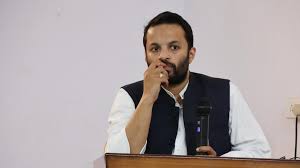SC extends interim bail to Ashoka University professor Ali Khan Mahmudabad, says no impediment on right to speech

The Supreme Court of India recently extended interim bail to Professor Ali Khan Mahmudabad, an associate professor and head of the Political Science Department at Ashoka University. The court emphasized that his right to freedom of speech and expression must be protected even during legal proceedings. This decision highlights how the judiciary balances individual rights with national security concerns.
Background of the Case
Professor Mahmudabad was arrested on May 18, 2025, after Haryana Police filed two First Information Reports (FIRs) against him. The FIRs followed his social media posts related to “Operation Sindoor.” Authorities claimed his posts threatened India’s sovereignty and integrity and promoted religious enmity.
His arrest sparked heated debates. Many academics and activists defended his right to free speech, while others criticized the posts as potentially harmful. This case raised important questions about how far free expression extends in today’s social media age.
Supreme Court’s Decision to Extend Bail
After his arrest, Mahmudabad sought relief from the Supreme Court. The court had initially granted him interim bail and now extended it further. The judges clarified that the Constitution guarantees freedom of speech, and this right should not be limited without strong reasons.
The court also imposed one key restriction. Mahmudabad must avoid making public statements or posting about the ongoing investigation. This rule aims to protect the integrity of the probe and prevent external influence.
The Supreme Court asked the Special Investigation Team (SIT) to submit a detailed progress report on the case. It warned the SIT to focus only on the allegations mentioned in the FIRs. The court cautioned against expanding the investigation beyond the original scope.
Legal and Constitutional Significance
This case highlights the tension between free speech and legal restrictions. Article 19(1)(a) of the Indian Constitution guarantees freedom of speech but allows reasonable limits for sovereignty, security, and public order.
The Supreme Court reaffirmed that free speech cannot be curtailed unless there is clear evidence of harm or threat to security. This principle is crucial for academics, journalists, and commentators who express strong opinions.
The court’s order restricting Mahmudabad’s public comments during the investigation reflects a balanced approach. It protects the legal process while safeguarding his constitutional rights. This case shows that free expression and lawful investigation can coexist.
Reactions from Academia and Society
Academic institutions and civil rights groups welcomed the bail extension. They see it as a defense of free speech against potential misuse of legal power. Ashoka University expressed support for Mahmudabad, highlighting the importance of academic freedom.
Civil society organizations stressed that accountability is important but must not suppress legitimate dissent. They urged transparent, unbiased investigations.
Some political commentators, however, warned that the case reveals the challenge of distinguishing free speech from hate speech. Statements that divide communities must be addressed carefully. The legal system faces the task of protecting speech without allowing harmful messages.
Social Media’s Role and Contemporary Challenges
This case underlines social media’s influence on public debate. Digital platforms allow individuals to share views widely, but they also spread misinformation and inflammatory content.
Regulators and courts worldwide face the challenge of balancing free expression with the need to control harmful speech. In India, the issue is especially sensitive due to the country’s diversity and communal tensions.
The Supreme Court’s measured response in this case highlights the need for nuanced solutions. Legal actions should not silence genuine voices, even while tackling security concerns.
What Lies Ahead
The investigation will continue under SIT supervision. The judiciary will keep playing a crucial role in maintaining balance.
The court’s decision to extend bail signals its commitment to uphold constitutional rights. The case will likely set important precedents on free speech limits, especially for intellectuals and academics.
Clear guidelines on handling social media content within legal frameworks will be essential moving forward.
Conclusion
The Supreme Court’s extension of interim bail to Ali Khan Mahmudabad reaffirms the fundamental right to free speech. It protects the voice of an academic while allowing a focused investigation to proceed.
India faces a complex challenge in balancing democratic freedoms with national security. This case serves as a reminder that protecting individual rights and upholding the law can go hand in hand.
As social media continues to shape discourse, courts and lawmakers must ensure that free expression remains protected without compromising public order and harmony.






